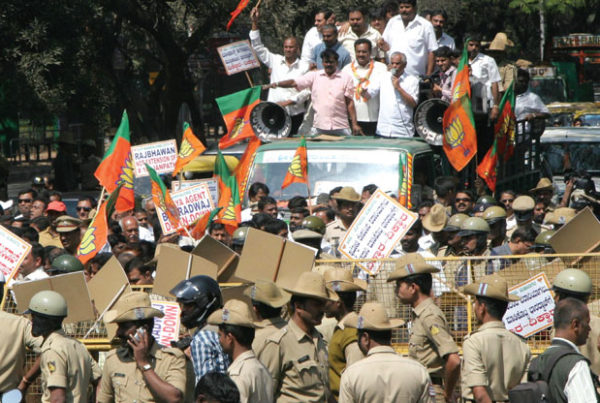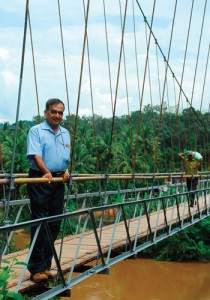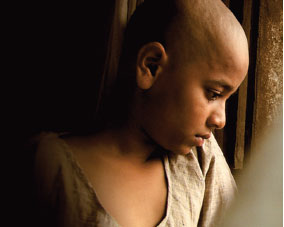The mining baron-brothers flex their muscles in Bellary, forcing a red-faced BJP to its knees, reports Sanjana Chappalli
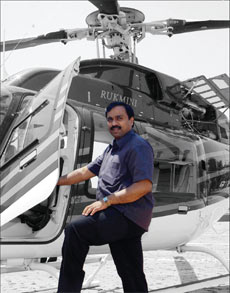 Flying high Janardhan Reddy is piloting the revolt against CM Yeddyurappa
Flying high Janardhan Reddy is piloting the revolt against CM YeddyurappaPhoto: Gagandeep
BELLARY, A dusty town 270 km from Karnataka’s capital Bengaluru, has over the years transformed into a power centre of the rich and powerful. Famous for its iron ore mines and mining barons, a meeting called in the town may yet result in a change of guard in the state. On October 25, at a meeting called by Gali Janardhan Reddy, a mining baron and Karnataka’s Minister for Tourism and Infrastructure, mine owners rejected a decision taken by the chief minister of the state, BS Yeddyurappa. He had gone too far, they resolved. Within three days of that meeting, the Bharatiya Janata Party rushed its senior leader and in charge for Karnataka, Arun Jaitley, to the state. The BJP’s first ever government in Karnataka was in trouble 18 months after it took charge.
In an effort to raise money for the flood victims in the state, the chief minister decided to impose a cess of Rs 1,000 on every lorry transporting iron ore – a decision that was vociferously condemned by Janardhan Reddy and his brothers as the cess would adversely affect their mining empire. Unwilling to withdraw the cess (and bow down to the Reddys’ demands), Yeddyurappa pressed and obtained the required Cabinet approval. Hours after the cabinet decision, Janardhan Reddy and his brothers announced a decision of their own. Rallying all the mine owners of Bellary, they announced a Rs 500 crore housing project for the flood-hit victims in north Karnataka – independent of the government’s own rehabilitation plans for the flood affected. Two days later, as the crises worsened, the Reddys rounded up BJP legislators close to them and shifted them to posh resorts in Hyderabad and Goa – out of the Chief Minister’s and Jaitley’s reach. Even as discussions to resolve the crisis continue with the BJP’s central leadership in New Delhi, the question being asked is who are the Reddy brothers? And how did Janardhan Reddy come to occupy such a central position in the state’s politics?
There are a lot of stories one can tell about 42-year-old Gali Janardhan Reddy and his family. A man who owed debtors Rs 200 crore when his finance company collapsed in 1998. Ten years later, in 2008, the same man admitted that he and his wife alone have assets worth Rs 115 crore; with business turnovers of over Rs 2,000 crore. At last count, he and his brothers owned four helicopters besides an undisclosed number of aeroplanes. A number of luxury cars line the Reddy homes. In May 2009, the family spent an estimated Rs 20 crore on a wedding. The helicopters owned by the family ferried over 10,000 guests to the wedding even as 500 air conditioners helped them forget outside temperatures of 42 degree Celsius. A month later, the brothers donated a Rs 42 crore diamond-studded crown to a temple deity.
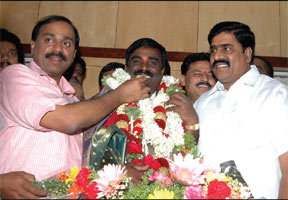
Power pack: Janaradhan and Karunakar greet their brother Somashekhar Photo: KPN
But it would be limiting to sketch Janardhan as a protagonist in a rags-to-riches story. If the last week alone is any indication, Janardhan Reddy has emerged to be a shrewd political strategist who is well on his way to establishing a Reddy Republic.
The second of three brothers, Janardhan Reddy is a member of the Karnataka Legislative Council – a position he has held since June 2006. His eldest brother Karunakar Reddy and the younger one Somashekhar are both members of the Legislative Assembly. B Sriramulu, another legislator from the area is very close to the family and is considered to be a Reddy brother. Of the four Reddy brothers then, three hold key portfolios in the current Yeddyurappa government while the fourth, Somashekhar is the chairman of a powerful statewide milk federation. Add to the family’s kitty, a Member of Parliament (Sriramulu’s sister J Shantha was elected to the Lok Sabha from Bellary), and two other members of Legislative Assembly. Impressive political growth for a family that first shot into the limelight for its trysts with senior BJP leader Sushma Swaraj during her election campaign against Sonia Gandhi in Bellary in 1999. Within the family, there is easy acknowledgement of the fact that two people responsible for this growth are Janardhan and Sriramulu.
As a political strategist, there is no doubting Janardhan’s abilities. Months after the BJP formed its first government in the South with the support of independent legislators, the party launched Operation Lotus to wean away legislators from other political parties into the BJP. The legislators were offered cash incentives, offers of ministerial berths and key positions in various government corporations. In a conversation with TEHELKA at the time, Janardhan did not dispute the allegation that the Reddy brothers were behind Operation Lotus – “We asked them and they answered positively. And God had has given us enough. We are only sharing what we have,” said Janardhan. Rumours at the time pegged the amount paid to legislators who walked over to the BJP at a few crore rupees each. Today as internal power struggles grip the party, three of the eight entrants under the BJP’s Operation Lotus have thrown their lot with the Reddy brothers. An investment that has paid off at the time of crisis.
It isn’t the idea of entrenched political influence in Karnataka alone that strengthens the idea of a Reddy fiefdom. It also emerges from the casual disregard the Reddys have displayed for nationally established boundaries between Karnataka and Andhra Pradesh. Anantapur, the droughtprone Andhra Pradesh district that borders the Reddys’ home district of Bellary in Karnataka is stamped heavily by the Reddys’ presence. Their mining corporation, Obalapuram Mining Company (OMC) holds iron ore mining leases in Anantapur. In the past two weeks alone, the Divisional Forest Officer in Anantapur has issued five notices to the Reddy brothers for illegally mining across the border in Karnataka despite holding leases in Andhra Pradesh. The notices talk in detail of how the Reddys shifted the Karnataka-Andhra Pradesh state border by destroying the boundary markers — an observation upheld by the Karnataka and Andhra High Courts as well. In the latest notice issued on November 1 the liabilities are clearly mentioned. If convicted, Janardhan Reddy alone is liable to pay a penalty of Rs 1,000 crore for mining without a valid permit and an imprisonment term of six months. The Reddys have never responded to any of the notices sent to them on the issue.
REDDY MOUNTED A REVOLT AGAINST THE CM, LEADING THE MINING LOBBY TO REJECT THE NEW CESS ON TRANSPORTATION OF IRON ORE
AN AIDE of the family, Kanti Reddy, told TEHELKA that the courts should consider the concern the brothers have for the people of Anantapur before indicting them for illegal activities. The brothers have provided employment to thousands of families there even as they spend all their money and energy for the upliftment of people in Karnataka, he said. It seems a simple logic – how do boundaries drawn years ago matter if there was no injustice done to people across them? Ask Janardhan about the illegality of mining across states, or of encroaching on someone else’s property and the response is a clipped no. It is a matter for the courts, says Janardhan. The only other comment he will offer is that the Reddys have been unfairly targeted by people blinded by jealousy.
IN 2006 REDDY DECLARED BELLARY OUT OF BOUNDS TO THE THEN CHIEF MINISTER. ‘BELLARY BELONGS TO US,’ IS HIS PROCLAMATION IN 2009
Besides mining corporations, the Reddys also own the Rs 25,000 crore Brahmani Steel plant in Kadapa, Andhra Pradesh. Amidst much controversy, late chief minister YS Rajashekhar Reddy had alloted 10,675 acres to the Reddy brothers to set up the steel corporation apart from the 3,500 acres for building a second airport in the district.
Perhaps what clinches the idea of a Reddy Republic are the stories about Janardhan’s public declarations on Bellary. A month after he was elected a member of the Karnataka Legislative Council he declared the district out of bounds for the then chief minister. Three years later in 2009, the council heard another declaration – Bellary belongs to us.
The ongoing discussions in Delhi between the Reddy brothers and the central BJP leadership then has many implications – it will determine the price a state has to pay for its Cabinet deciding to impose cess in Bellary without the Reddys’ consent.
—
This article was originally published in Tehelka, a leading independent news magazine in India, known for its investigative journalism.
